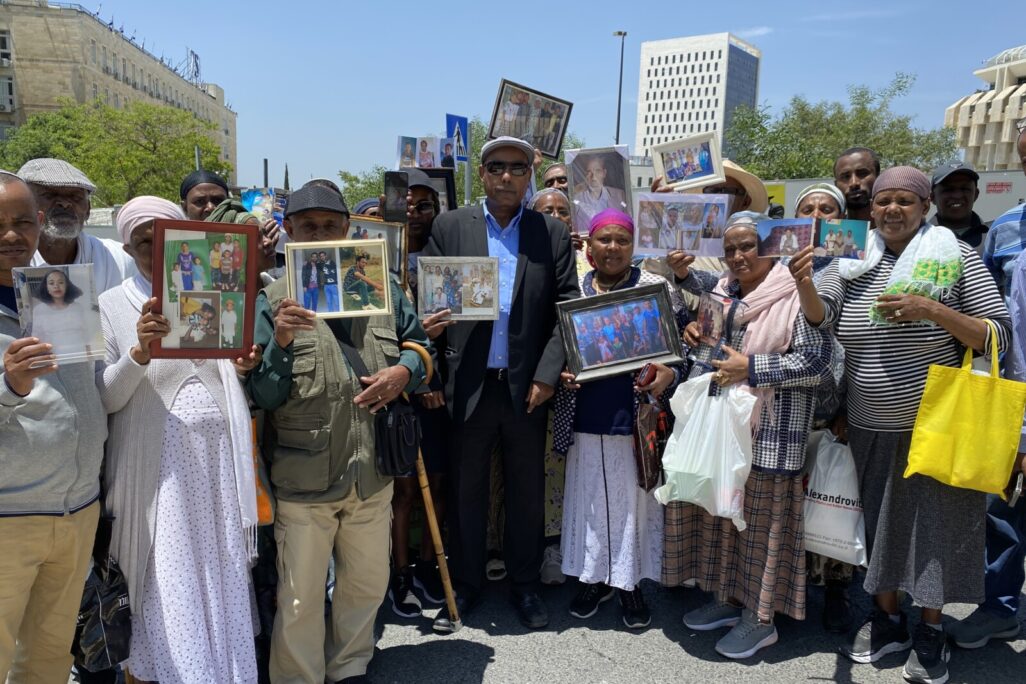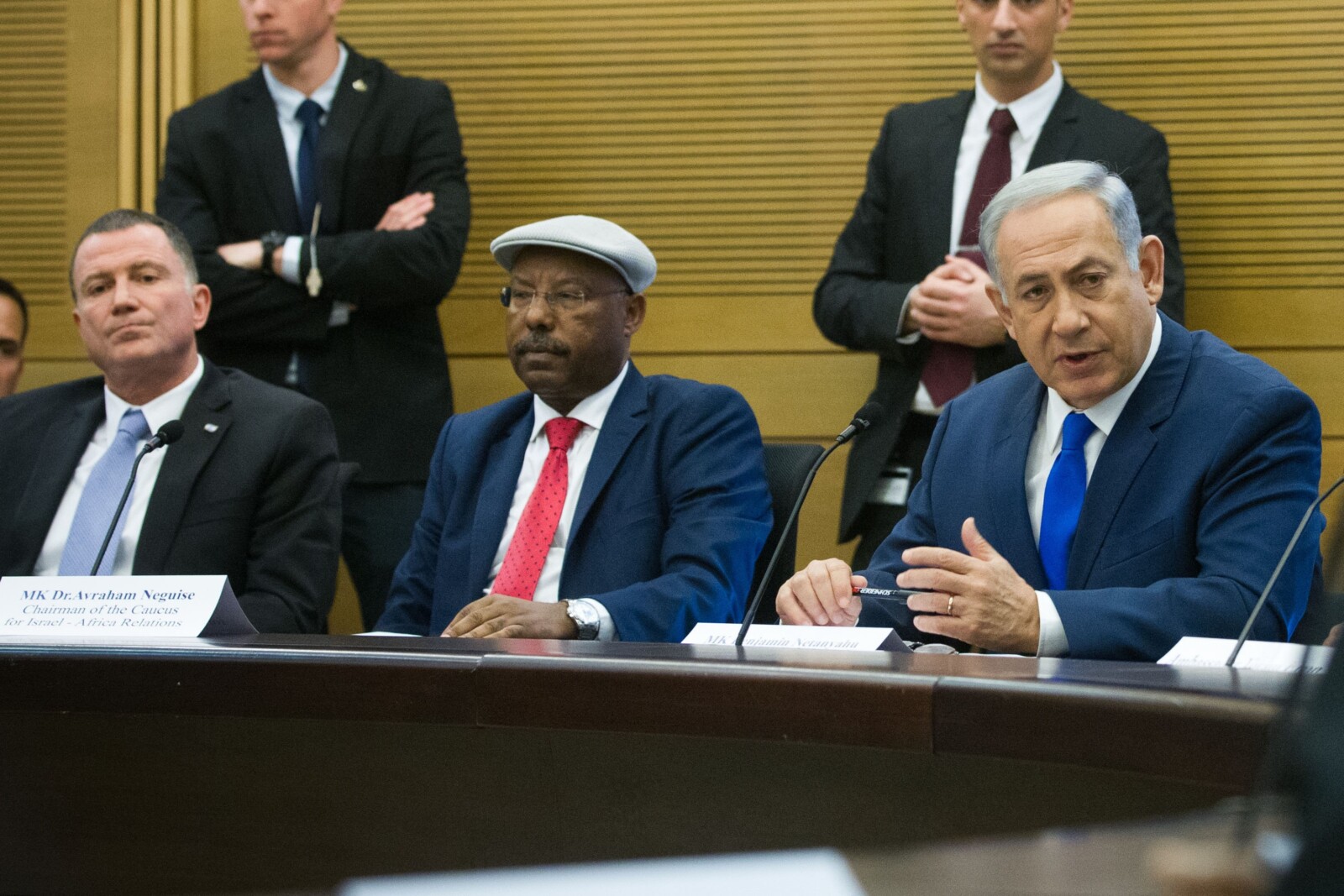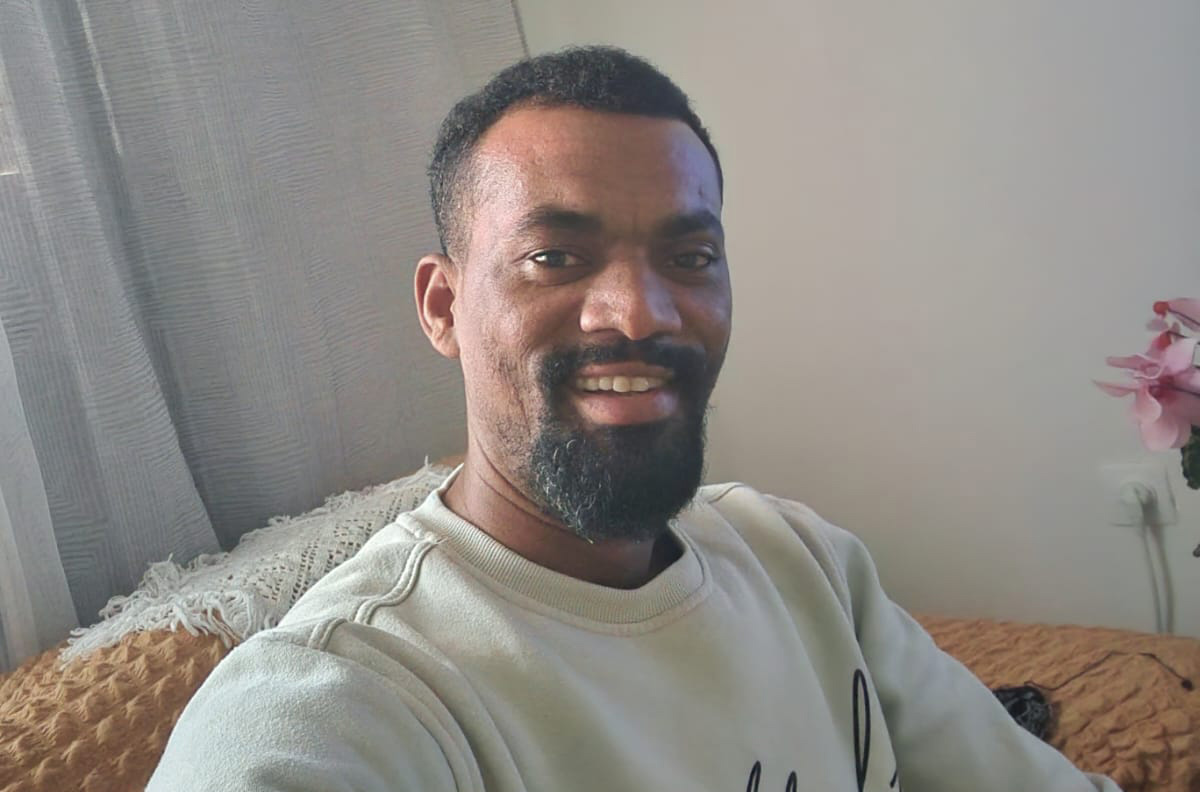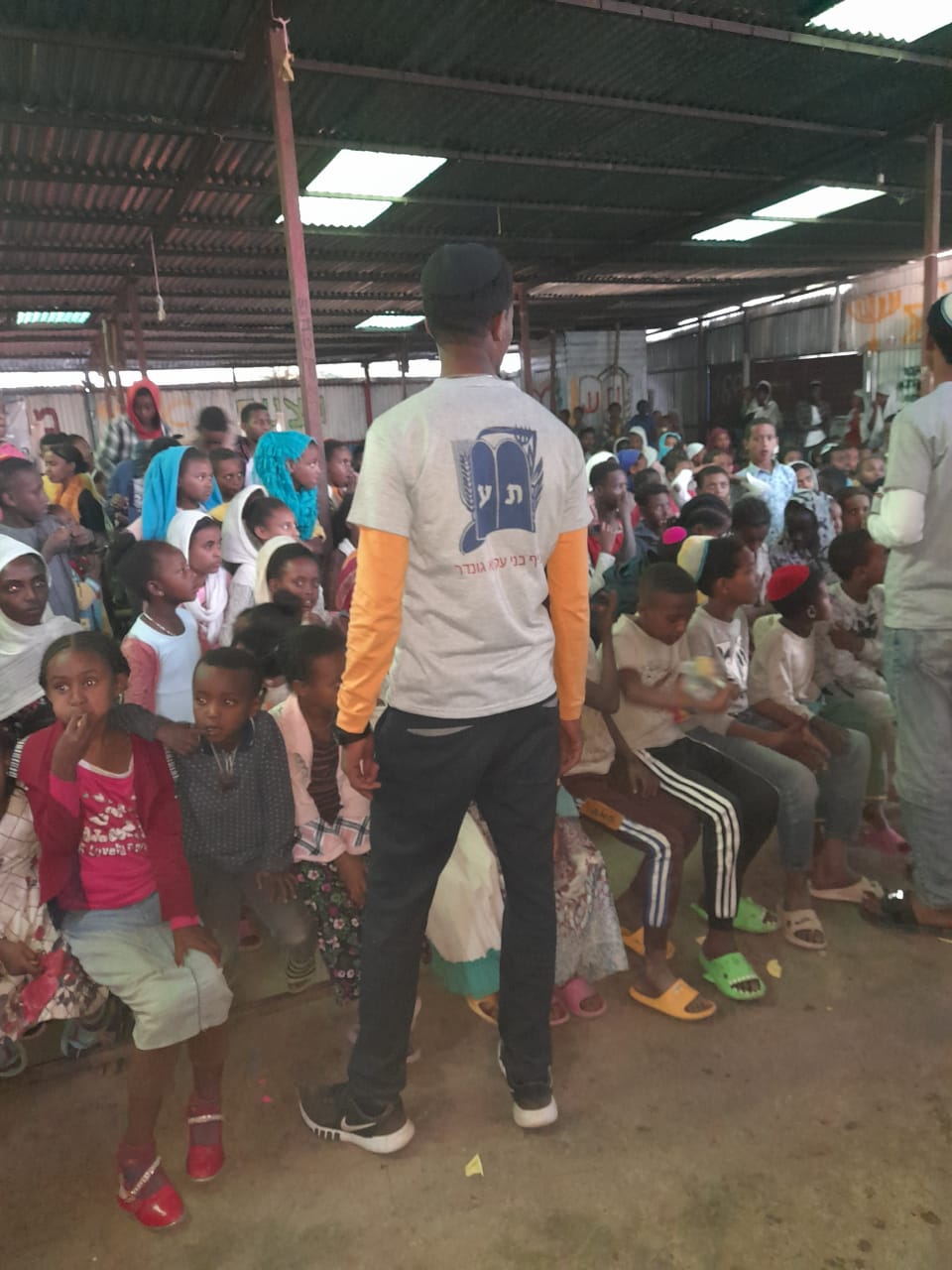
About 400 protesters demonstrated last month outside the Knesset in Jerusalem, demanding funding for the continued immigration of Ethiopian Jews. The demonstration was held on the memorial day for Ethiopian Jews who perished on their journey across Sudan to reach Israel. The protestors held photos of their relatives waiting to make aliyah, the Hebrew term for Jewish immigration to Israel.
One of the protesters, Yardao, is a new olah who immigrated three months ago and lives with her daughter in an absorption center in Ashkelon.
"My daughter Litch is 25 years old, and still in Addis Ababa," Yardao said. "They didn't tell me when she would be approved to come."

"When friends ask me where my mother is and I say she's in Ethiopia, they think it's her choice, because whoever wants to simply immigrates to Israel," said Zarfo Gebra, 26, who immigrated to Israel with his grandmother 21 years ago, while his mother and brother stayed in Gondar, Ethiopia. "They have been asking to immigrate to Israel for years. They are Jewish, but there is 'procedure.'"
At the beginning of May, the aliyah and absorption committee convened to discuss the continuation of Jewish aliyah from Ethiopia, in light of claims that there is no dedicated funding for the matter under the current government’s budget. Former minister Pnina Tamano-Shata, who signed the ‘Tzur Israel’ plan for aliyah during her term, said that Israeli governments have been divided in their attitude to aliyah from Ethiopia, and that the community must rise up.
"There will still be a commission of inquiry into how families were torn apart," said Oded Forer, chairman of the Knesset’s Aliyah, Absorption, and Diaspora Committee. "The State of Israel can't handle 12 thousand people? We can. We demand unequivocally from the government – no quotas for immigration. I can’t live in peace with the fact that there are people who live in camps when they want to enter Israel."
At the demonstration, former Knesset member Avraham Negosa claimed that "[t]here is a malicious intent here to separate mothers and children, fathers and daughters – they want to stop the aliyah from Ethiopia and separate families forever."
Negosa, a Likud member and former chairman of the Aliyah, Absorption, and Diaspora Committee on behalf of the party, expressed shame and outrage over the discrimination in the budget for continued aliyah.
"The Israeli government made a unanimous decision to bring the families first," Negosa said. "Back in 2015, the government approved a budget of half a billion shekels for the continuation of the ‘Tzur Israel' immigration plan, in which 3,000 Jews immigrated from Ethiopia. The last plane with the planned immigrants from Tzur Israel is scheduled to land on June 14, after which aliyah from Ethiopia will be closed, unless the government decides otherwise.
"I am ashamed that my party, which today heads the coalition, does not allow the continued immigration of Ethiopian Jews to take place. I call on the Prime Minister to stand and decide that there will also be a budget for Ethiopian aliyah, and to stop discriminating against Ethiopian Jews."

"It's not a problem of budget, it's a problem of will," said Negosa. "They don't want to bring [the waiting olim] in, and they wait for years during a crisis of hunger, disease, and war. The Jewish government forgets them and disowns our brothers."
According to Negosa, the transit camps in Gondar and Addis Ababa contain 12,000 Jews waiting to immigrate, and the government could make a decision to allow all of them to immigrate. He claimed the cost of Ethiopian aliyah is less than that of immigration from other countries.
“But only when it comes to the immigration from Ethiopia do they ask how much it costs. Does anyone ask about the costs for other immigrants? I'm in favor of them coming, our brothers, but we also have to care for aliyah from Ethiopia.'
Zerfu Gabra, one of the participants in the protest, lives with his grandmother Ketama in Be'er Sheva. For years, even today after having completed his military service, he has continued to send money to his mother Maslo and his non-verbal brother Yarid, both of whom remain in Gondar. Supporting them makes it difficult for Gabra to move forward and realize his dream of studying cinema.
"I have to make a film about my life," he said, "that will happen. But for now I can't study. I did full military service, I did everything here, why don't I deserve to meet my mother? I'm not asking for a million shekels, just enough to live with peace of mind."
Fellow protester Elhovel Bavakat, 32, also hasn't seen his mother in years. "After waiting 15 years, I made aliyah in 2017," he said. "I was at the Tzfat absorption center for almost two years, and now I live with my wife and two children in Kiryat Yam, and work as a courier. My mother and other brothers are waiting in Gondar. Why they won't bring them to us, I don't know. Life is difficult without parents, without close family. All Israelis know that without parents, it is impossible to live. It's really hard." Atrasev Bavakat, his brother who lives in Gondar, is a youth mentor in the transit camp.

"Life is very difficult there, my brother prays in the synagogue," he says, "they hold Judaism close to their hearts, and they want to make aliyah, what do they have there? Five people in a two meter room. They always say there is a line, and there are waiting lists."

Sorfal Alamo, spokesman for the Headquarters of the Struggle for the Aliyah of Ethiopian Jews, the body that organized the protest in front of the Knesset, is furious.
"Although the lives of Ethiopian Jews are in real danger in the shadow of the war, the Israeli government ignores them and their families who live here in Israel in distress, and encourages immigration from other places. We will protest so that this blatant discrimination will stop."
According to the most conservative estimates, there are as many as 13 thousand Ethiopian Jews in the camps in Gondar and Addis Ababa who have been waiting for years to immigrate to Israel. Unlike aliyah from other countries, immigration from Ethiopia involves long waiting lists, specific requirements, special operations, and massive pressure, and also relies significantly on funding from American Jewry.
"Stop playing with people's lives,” implored Gabra. “Every minute we are without our families someone can die, it's been years since we saw each other. Why does all this pain continue even now?"
This article was translated from Hebrew by Nancye Kochen.






